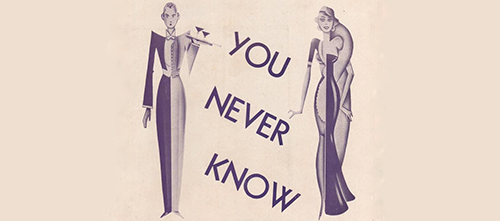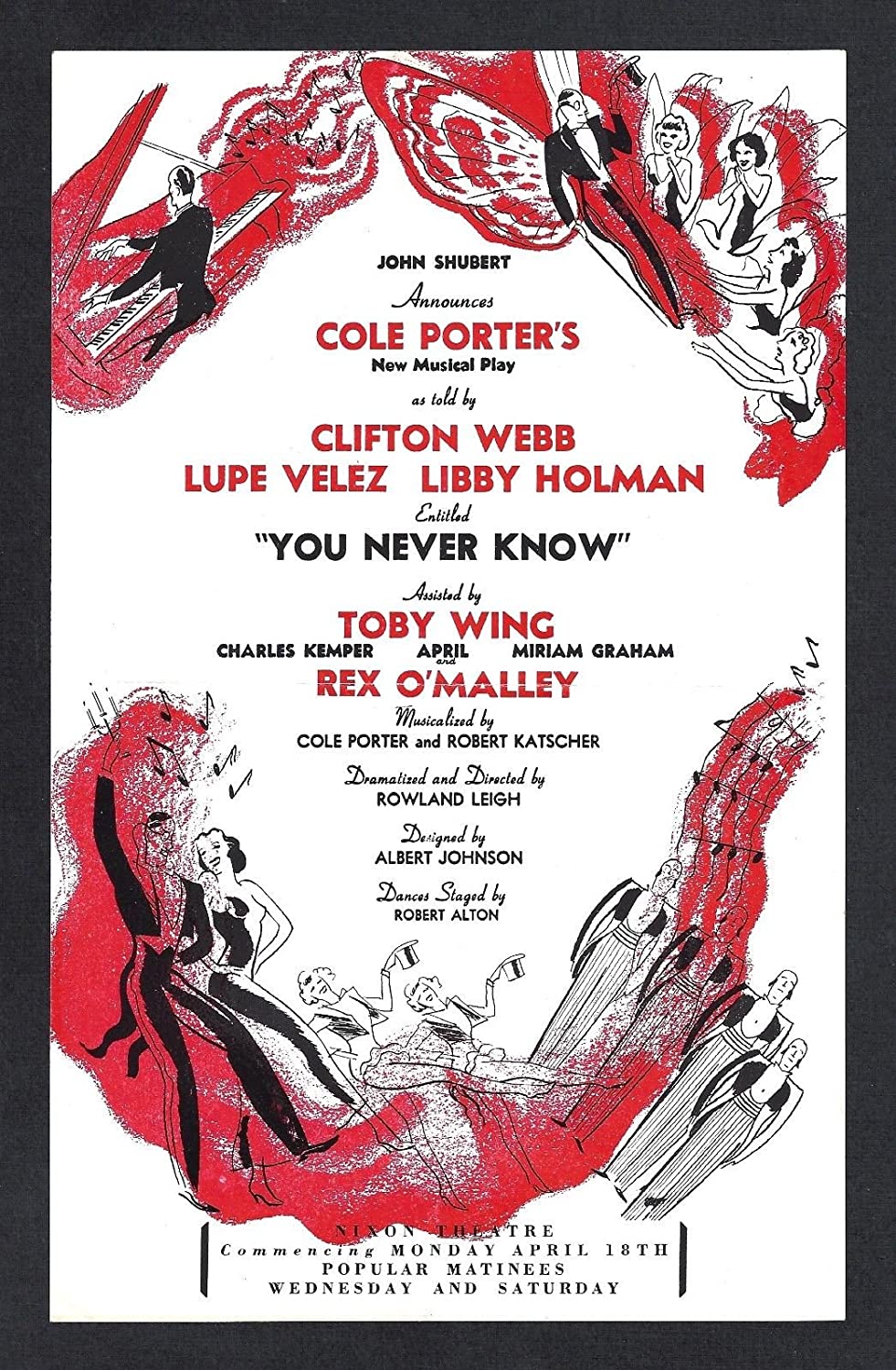Pas de biographie disponible.
Compositeur Musique additionelle Librettiste Parolier Metteur en scène Chorégraphe Producteur création Producteur version

Opérette
Musique: Karl Millöcker • Paroles: Rowland Leigh • Livret: Camillo Walzel • Richard Genée • Production originale: 1 version mentionnée
Dispo: Résumé Génèse
Genèse: During the years of his musical maturity in the 1880s, Carl Millöcker (1842 - 1899) was regarded as an operetta composer in the same class as Johann Strauss II and Franz von Suppé. Indeed, it was Suppé who recommended his colleague as a conductor to the Thalia-Theater in Graz in 1864. Millöcker, who had been trained as a flutist at the Vienna Conservatory from 1855 to 1858, moved about considerably as he established himself, first as a conductor, and later as a composer of operetta. While at first, Millöcker wrote one-act works similar to those of Offenbach, he subsequently turned to composing full-length operettas. Of all his successful stage works, Der Bettelstudent (1882) has maintained the firmest hold on the public's affections. Gräfin Dubarry (1879), set to a libretto by Zell and Genée, was not a major success. It nevertheless contained some quite beguiling music, notably the arias composed for the heroine, based on an actual historical French countess who was a favored mistress of King Louis XV. From her exceedingly modest start as a millinery worker, Jeanne (as she is known) rises to celebrity as a Parisian dancer and singer. In "Ich schenk mein Herz" (I Offer my Heart) she recounts the joys and disappointments of love and expresses her resolve to give her heart to one special man only, be he slave or king. Another aria beloved of operetta sopranos is "Was ich im Leben beginne...Ja so ist sie, die Dubarry" (When I begin a thing in life...Yes, that's what she is like, this Dubarry). Often referred to as "Jeanne's Song" (especially when sung in English translation), this aria offers a buoyant opening and close brightly enfolding a glowing 3/4 time center section, first reflective, then ecstatic as the countess Dubarry describes the fire of her kiss for the right man. While the work in toto has been poorly represented on disc, several prominent sopranos have essayed these two memorable sections from the score -- most notably Elisabeth Schwarzkopf, who set an intoxicating, unsurpassable standard in a 1957 recording of operetta arias. However modest the acclaim extended to the original work, Dubarry achieved considerable popularity when, in 1931, the best portions of the score were appropriated for a pastiche by Theo Mackeben, presented under the title Die Dubarry. In this form, set to an entirely new libretto, Millöcker's music achieved the same widespread performance and acceptance as that enjoyed by his most successful works of the 1880s and 1890s (such as Der Bettelstudent. The revision was frequently produced and very well received throughout Europe, England, and North America.
Résumé: The young milliner, Jeanne, quarrels with the hat-shop owner, Madame Labille, and, unemployed, has to rely on her poet-lover, René Lavallery, for financial support. However, the Comte Dubarry entices her away from the poet’s garret to the Maison Dubarry. Even higher “honours” are on offer, for the Maréchale de France, makes it clear the King is very interested in Jeanne, the “Madame Dubarry”, and is willing to pay the Comte’s debts for a consideration. The Comte is only too ready to make a deal - it seems there are many pimps and procurers at the court of Louis Quinze - and the upshot of it all is, of course, that Madame Dubarry becomes the uncrowned Queen of France.
Création: 31/10/1879 - Theater an der Wien (Vienne) - 397 représ.

Musical
Musique: Karl Millöcker • Paroles: Paul Knepler • Livret: Paul Knepler • Rowland Leigh • Production originale: 4 versions mentionnées
Dispo: Résumé Commentaire
Genèse:
Résumé: The young milliner, Jeanne, quarrels with the hat-shop owner, Madame Labille, and, unemployed, has to rely on her poet-lover, René Lavallery, for financial support. However, the Comte Dubarry entices her away from the poet’s garret to the Maison Dubarry. Even higher “honours” are on offer, for the Maréchale de France, makes it clear the King is very interested in Jeanne, the “Madame Dubarry”, and is willing to pay the Comte’s debts for a consideration. The Comte is only too ready to make a deal - it seems there are many pimps and procurers at the court of Louis Quinze - and the upshot of it all is, of course, that Madame Dubarry becomes the uncrowned Queen of France.
Création: 14/8/1931 - Admiralspalast (Berlin) - représ.

Musical
Musique: Cole Porter • Robert Katscher • Paroles: Cole Porter • Livret: Rowland Leigh • Production originale: 1 version mentionnée
Dispo: Résumé Commentaire Génèse Liste chansons
You Never Know is a musical with a book by Rowland Leigh, adapted from the original European play By Candlelight, by Siegfried Geyer and Karl Farkas, with music by Cole Porter and Robert Katscher, lyrics by Cole Porter, additional lyrics by Leigh and Edwin Gilbert, directed by Leigh, and songs by others. The show was written not long after the riding accident that left Porter semi-crippled, and is considered one of the flops he wrote before his return to prominence with Kiss Me, Kate.[1]
Genèse: The show was first produced in Europe with a small cast, but the Shubert Brothers (who produced it for Broadway), did not want to produce it with no chorus or large stage numbers. They hired Porter and other composers to write extra material, and when it premiered on Broadway in 1938 it was no longer a chamber musical, but a typical 1930s "big musical". Original Broadway cast Produced by John Shubert, the Broadway production, opened on September 21, 1938 at the Winter Garden Theatre, where it ran for 78 performances, after tryouts in New Haven, Boston, Washington, Philadelphia, Chicago, and Indianapolis, among others. The cast featured Clifton Webb, Lupe Vélez, Libby Holman, Toby Wing (later replaced by June Havoc), and Rex O'Malley. Later productions It was staged Off-Broadway at the Eastside Playhouse from March 12 to March 18, 1973, lasting only 8 performances. The show was directed and production design by Robert Troie and musically directed by Walter Geismar. The show starred Esteban Chalbaud, Lynn Fitzpatrick, Dan Held, Rod Loomis, Grace Theveny, and Jamie Thomas.[4] The number Greek To You, They All Fall In Love, and You've Got That Thing was added. In 1975, there was a regional production of the show put on in Ogunquit, Maine at the Ogunquit Playhouse from August 4 to August 9. The show starred Bob Wright, Kitty Carlisle, Joe Masiell, and Bernice Massi.[6][7] This production added Porter numbers from other works, including the songs After You, Who? (Gay Divorce), Greek To You (Greek To You), It Must Be Fun To Be You (cut from Mexican Hayride), Waltz Down The Aisle (Ever Yours), What A Fair Thing Is A Woman (cut from Can Can), What Does Your Servant Dream About? (cut from Kiss Me, Kate), and Who Knows? (Rosalie). May 26, 1991 was the opening night of You Never Know at the Pasadena Playhouse in Pasadena, California. The show was directed by Paul Lazarus, musical director John McDaniel, set design James Leonard Joy, lighting design Martin Aronstein, costume design Reve Richards, sound design Jack Allaway, choreography by Thommie Walsh, and musical supervision, arrangements, and orchestrations Steve Orich. The show starred David Garrison (Gaston), Harry Groener (Baron), Kurt Knudson (Herr Baltin), Donna McKechnie (Baltin), Megan Mullally (Maria), and Angela Teek (Ida). There was an Off-Broadway revival in 1996 at the Paper Mill Playhouse. The show was directed by Charles Repole, set design Michael Anania, costumes by Gregg Barnes, lighting Tom Sturge, sound David R. Paterson, music direction John Mulcahy, and choreography by Michael Lichtefeld. The show starred Stephanie Douglas (Maria), Nancy Hess (Baltin), Tom Ligon (Herr Baltin), Michael O'Steen (Gaston), John Scherer (Baron), and KT Sullivan (Ida). It had a limited run from April 14–24, 2009 at the McGinn/Cazale Theatre. The show was directed by Thomas Sabella-Mills, lighting design Yingzhi Zhang, musical direction by James Stenborg. The show starred James Zanelli (Baron), Kevin Kraft (Gaston), Kate Marilley (Baltin), Jennifer Evans (Maria), Christy Morton (Ida), Bill Coyne (Waiter), and Todd Faulkner (Herr Baltin).
Résumé: Maria, maid to Mme. Baltin, impersonates her mistress while carrying out an assignation with the Baron de Romer's valet, Gaston, whom she believes to be the Baron himself. The Baron discovers the pair, but, being a good sport, he assumes the role of his servant in order to assist Gaston in his romantic pursuit. When Mme. Baltin discovers her maid's deceit, she is less of a good sport and exposes the masquerade. All ends happily, though, as the foursome sup by candlelight. Other characters include the Baron's gregarious friend Ida Courtney and Mme. Baltin's cheating husband, Henri, the dry goods king of France.
Création: 21/9/1938 - Winter Garden Theatre (Broadway) - 78 représ.

Version 1
You Never Know (1938-09-Winter Garden Theatre-Broadway)
Type de série: OriginalThéâtre: Winter Garden Theatre (Londres - Angleterre) Durée : 2 mois Nombre : 78 représentationsPremière Preview : Wednesday 21 September 1938Première : Wednesday 21 September 1938Dernière : Saturday 26 November 1938Mise en scène : Rowland Leigh • Chorégraphie : Producteur : Avec : Clifton Webb (Gaston), Rex O’Malley (Baron Ferdinand de Romer), Eddie Gale (Chauffer), Toby Wing (Ida Courtney), Lupe Vélez (Maria), Charles Kemper (Henri Baltin), Libby Holman (Mme. Baltin [Jeanne Montaigne]), Roger Stearns (Headwaiter), Wesley Bender (Louis), Dan Harden (Geoffrey), Truman (earlier, Trueman) Gaige (General Carruthers), Ray Dennis (Comptroller); The Debonairs: Edwin Gale, Buddy Hertelle, Harold Murray, Paul Pierce, Harold Voeth, Jack Voeth; Specialty Dancers: Paul and Grace Hartman, June Preisser; Showgirls: Cynthia Cavanaugh, Dorothy Compton, Jacqueline Dahlia, Virginia Daly, Natasha Dana, Barbara Elliott, Tilde Getze, Chris Gustafson, Billie Hill, Helen Hudson, Alice McWhorter, Mildred Riley, Lee Stephenson, Arlene Stone, Ellen Taylor; Dancers: Joanna Allen, Helen Bennett, Marion Broske, Mary Ann Carr, Louise De Forrest, Enes Early, Helen Ecklund, Grace Gillern, Irene Kelly, Edith Lambot, Mary Ann O’Brien, Mildred Ramey; Boys: Wesley Bender, Gus Schirmer Jr., Ray Dennis, Robert Smith, Jack Richards